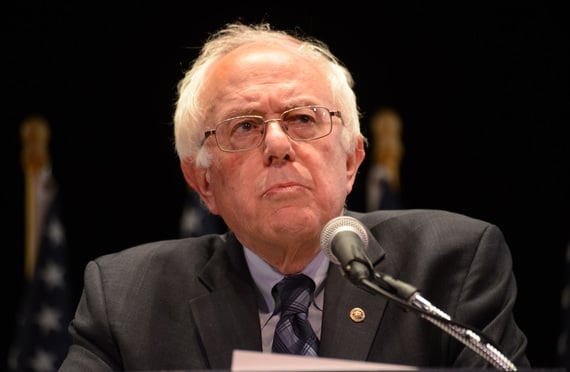(Bloomberg) -- California is becoming the new battleground fordrug pricing, with pharmaceutical companies pouring millions ofdollars into an effort to head off a state ballot initiative thatwould rein in spending on medicine.
|The California Drug Price Relief Act would requiregovernment health programs to only contract with drugmakers atprices that are the same as or lower than those paid by the U.S.Department of Veterans Affairs, which typically gets deep discountson medications from drug manufacturers.
|Drug prices have "gone from crazy toobscene," said Michael Weinstein, president of the AIDSHealthcare Foundation, in a September interview. The LosAngeles-based non-profit organization is a proponent of theinitiative. "Every new category of drugs is like 30 percent higherthan the previous one."
|Drugmakers have argued that drug prices haven’t risen as much asthey appear because insurers and government programs pay much lessthan the list price after negotiations.
|They also note that drug prices haven’t risen as a portion ofoverall U.S. health-care spending in recentyears.
|The initiative would be presented to voters in November 2016 ifit gets the required signatures.
|Even though that’s more than a year away and the measure isn’tyet confirmed to be on the ballot, industry organizationPharmaceutical Research and Manufacturers of America is alreadymobilizing, setting up a fund of more than $10 million to fight thebill.
||Contributing to the fund are eight drugmakers, including Johnson& Johnson, which gave $5.86 million, Bristol-Myers Squibb Co.,which gave $2.88 million, along with Pfizer Inc., Eisai Co., PurduePharma LP, the Medicines Co., Sunovion Pharmaceuticals Inc. andDaiichi Sankyo Co., according to a report filed last week with theCalifornia Secretary of State
|Representatives for J&J, Bristol-Myers and Purdue declinedto comment. Representatives for Pfizer, Eisai, the Medicines Co.,and Sunovion didn’t respond to requests for comment sent afterbusiness hours.
|Daiichi Sankyo in an e-mail said it has contributed $10,000 tothe California Initiative Fund. The company "has serious concernsabout this measure and its potential impacts," it said.
|Clinton’s tweet
|Pharmaceutical companies may be particularly concerned about theCalifornia act since the national conversation on drug pricing hasheated up in recent weeks.
|Democratic presidential candidate Hillary Clinton criticizedTuring Pharmaceuticals AG on Sept. 21 for a price hike of more than5,000 percent on an old anti-parasite drug it acquired. Her pledgeto reform the industry sent the Nasdaq Biotechnology Indextumbling. Turing has said it will lower the price of the drug,though it hasn’t said how much.
|Further political pressure came from House Democrats, who arepushing to subpoena Valeant Pharmaceuticals International Inc. fordocuments relating to drug-price increases.
|Valeant has said its business model doesn’t rely on large priceincreases and that increased pressure from politicians to curbgovernment reimbursements won’t hurt the company.
|“While this ballot measure may look simple, the changes beingproposed will have adverse consequences for Californians," KathyFairbanks, a spokeswoman for the California campaign being formedby the drug companies to oppose the ballot measure, said in ane-mail. “If it goes forward, we will be preparing a campaign toeducate voters in California about its negative consequences.”
|Fairbanks said the campaign is still studying the proposedinitiative to formulate its response.
||The AIDS Healthcare Foundation is watching the national- levelpolitics closely, said Weinstein. "We want to make this a nationalpresidential campaign issue," he said. "If these pass you are goingto see a flurry of legislative action across the country,"referring to the California initiative and a similar ballot inOhio.
|The group expects to have 525,000 to 550,000 signatures bymid-October, well in excess of the 366,880 needed to qualify forthe ballot, a spokesman said.
|Spending
|It’s not uncommon for companies to spend tens of millions ofdollars to oppose ballot initiatives in California.
|Health insurers contributed $56 million to defeat a 2014initiative to make rate changes on insurance plans subject to stateapproval.
|The ballot initiative follows a proposal earlier this year byCalifornia Assembly member David Chiu to require manufacturers toexplain the production costs behind any drugs that cost $10,000 ormore per year. The bill stalled in the California legislature,lacking the needed votes to be passed, and will be revisited nextyear.
|While proponents are pushing similar proposals in other parts ofthe U.S., it’s easier for citizens to get initiatives andreferendums on the ballot in California than in some other states,in part because no action by the state legislature is required oncea proponent obtains enough certified signatures.
|Furthermore, not all states allow citizens to place issues onthe ballot.
|The AIDS Healthcare Foundation is backing another Drug PriceRelief Act in Ohio.
|From 1904 to 2012, California voters weighed in on 352 of them,more than any other state besides Oregon, according to theInitiative and Referendum Institute at the University of SouthernCalifornia.
|Copyright 2018 Bloomberg. All rightsreserved. This material may not be published, broadcast, rewritten,or redistributed.
Complete your profile to continue reading and get FREE access to BenefitsPRO, part of your ALM digital membership.
Your access to unlimited BenefitsPRO content isn’t changing.
Once you are an ALM digital member, you’ll receive:
- Critical BenefitsPRO information including cutting edge post-reform success strategies, access to educational webcasts and videos, resources from industry leaders, and informative Newsletters.
- Exclusive discounts on ALM, BenefitsPRO magazine and BenefitsPRO.com events
- Access to other award-winning ALM websites including ThinkAdvisor.com and Law.com
Already have an account? Sign In
© 2024 ALM Global, LLC, All Rights Reserved. Request academic re-use from www.copyright.com. All other uses, submit a request to [email protected]. For more information visit Asset & Logo Licensing.








